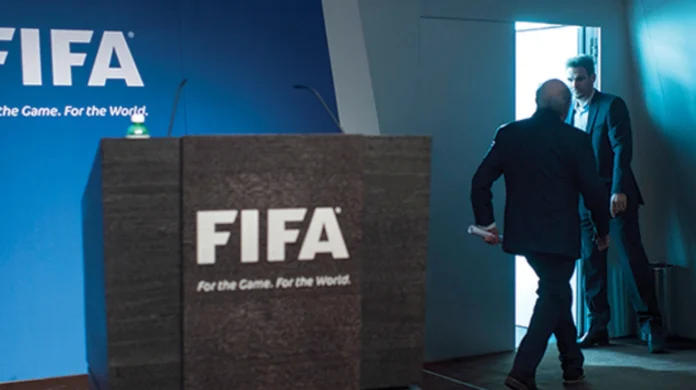The 2015 FIFA corruption scandal marked a watershed moment in the history of international sports governance. It did not merely expose isolated wrongdoings but revealed a pervasive culture of corruption, systemic governance failures, and a lack of accountability at the core of football’s global governing body. Almost a decade later, the awarding of the 2034 FIFA World Cup to Saudi Arabia has renewed concerns about FIFA’s commitment to reform. This analysis critically examines the root causes of the 2015 scandal, evaluates FIFA’s post-scandal reforms, and assesses how the 2034 decision illustrates the persistence of compliance and ethical failures.
Systemic Corruption and Deep Governance Failures
The 2015 scandal brought to light an entrenched system of bribery, fraud, and racketeering within FIFA. Over two decades, top officials exploited the “one country, one vote” system to manipulate elections and World Cup bidding processes for personal enrichment. This system created structural vulnerabilities: smaller member associations, often underfunded and lacking strong oversight mechanisms, were especially susceptible to bribery in exchange for votes.
FIFA’s governance structure allowed power to be overly centralized, particularly in the office of the President. Oversight committees were either weak or undermined, and transparency was notably absent from decision-making processes . Corruption, far from being an aberration, was systemic—enabled by a culture that normalized unethical behavior and discouraged dissent.
Reform Efforts: Progress or Cosmetic Change?
In the wake of the scandal, FIFA announced a series of reforms aimed at restoring public trust. These included term limits for top officials, separating political and administrative roles, and granting more power to an Independent Ethics Committee. On paper, these steps suggested a shift toward transparency and integrity.
However, independent evaluations such as those by FairSquare reveal a starkly different reality. Their 2024 report concluded that FIFA’s reforms have been largely ineffective, with little to no substantial improvement in transparency or governance practices. In some areas, governance has even regressed.
Commercial success continues to mask ethical shortcomings. Despite implementing reform frameworks, FIFA has repeatedly been criticized for turning a blind eye to human rights abuses linked to mega-events—most notably, during the 2022 World Cup in Qatar and now, the upcoming 2034 edition in Saudi Arabia.
Key Ethical Lessons
The FIFA corruption scandal offers enduring lessons for compliance and governance in global sports:
- Transparency Is Non-Negotiable: FIFA’s opaque bidding processes were central to how corruption thrived. Lack of transparency facilitates unethical deal-making behind closed doors, leaving stakeholders and the public in the dark .
- Checks and Balances Must Be Real: Governance systems without independent oversight are inherently flawed. FIFA’s decision-making bodies failed to hold leadership accountable, making it easy for corrupt practices to persist.
- Ethical Culture Matters: A culture that normalizes unethical behavior cannot be changed by policies alone. Cultural transformation—starting from the top—is essential for long-term change.
- External Regulation May Be Necessary: Self-regulation has proven insufficient. Legal frameworks such as proposed EU legislation on sports governance may provide the necessary external pressure to ensure compliance.
The 2034 Saudi Arabia World Cup: A Case Study in Repeated Failures
The announcement of Saudi Arabia as the 2034 World Cup host raised immediate concerns. The bidding process was fast-tracked, with Australia withdrawing, leaving Saudi Arabia as the only contender—a scenario eerily reminiscent of past shady deals.
Governance and Transparency Lapses
Critics argue that the process lacked fairness and openness, with suggestions that Saudi Arabia’s selection was orchestrated behind closed doors. President Gianni Infantino’s close ties with Saudi officials have further fueled skepticism about FIFA’s impartiality. This casts doubt on FIFA’s commitment to its own reform pledges and revives fears that commercial interests outweigh ethical considerations.
Human Rights at Stake
Human rights organizations, including Human Rights Watch and ALQST, have issued strong warnings. Saudi Arabia’s record on civil liberties, repression of dissent, and treatment of migrant workers poses a direct risk of rights abuses in the run-up to the tournament. A joint statement by leading human rights groups described the decision as one that “risks lives and exposes FIFA’s continued disregard for human rights obligations”.
Development and Compliance Trade-Offs
Saudi Arabia has positioned the World Cup as a catalyst for economic development, tourism, and global visibility. The country promises infrastructure upgrades, job creation, and modernization efforts aligned with its Vision 2030 goals. While these objectives are commendable, they cannot justify overlooking compliance and human rights obligations. Without enforceable safeguards, these ambitions risk repeating the pattern of failed promises and exploitative labor practices seen in past World Cups.
A Test for FIFA’s Future
The 2015 scandal should have been a turning point for FIFA. Instead, it has become a cautionary tale about the challenges of reforming powerful, profit-driven institutions without strong external oversight. Despite formal changes, FIFA continues to operate in ways that cast doubt on its ethical commitments.
The 2034 World Cup in Saudi Arabia is more than a sports event—it is a litmus test for whether FIFA has learned anything meaningful from its darkest chapter. If the organization hopes to regain credibility, it must prioritize independent oversight, enforce transparency in all processes, and place human rights at the center of its decision-making.
Until then, the specter of 2015 will continue to loom over FIFA, a reminder that corruption flourishes where compliance and ethics are treated as public relations rather than foundational principles.













